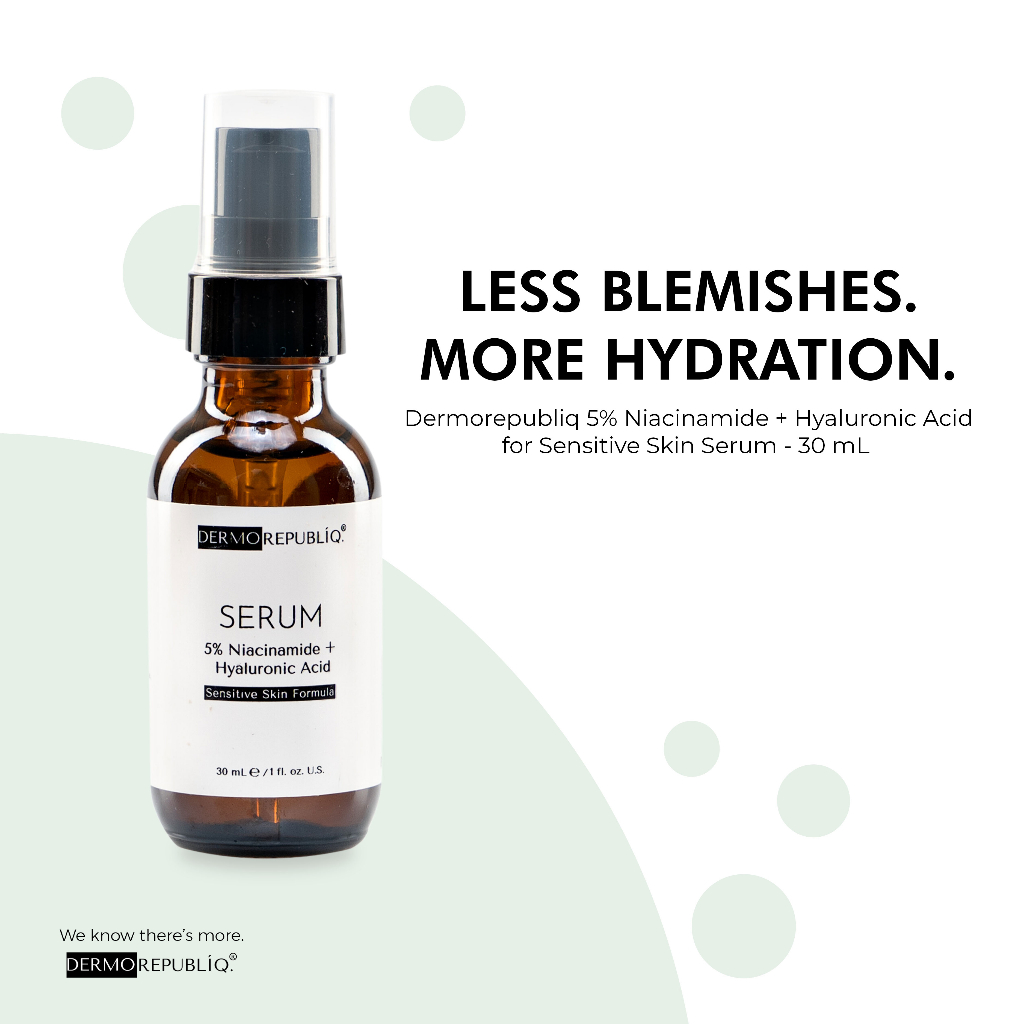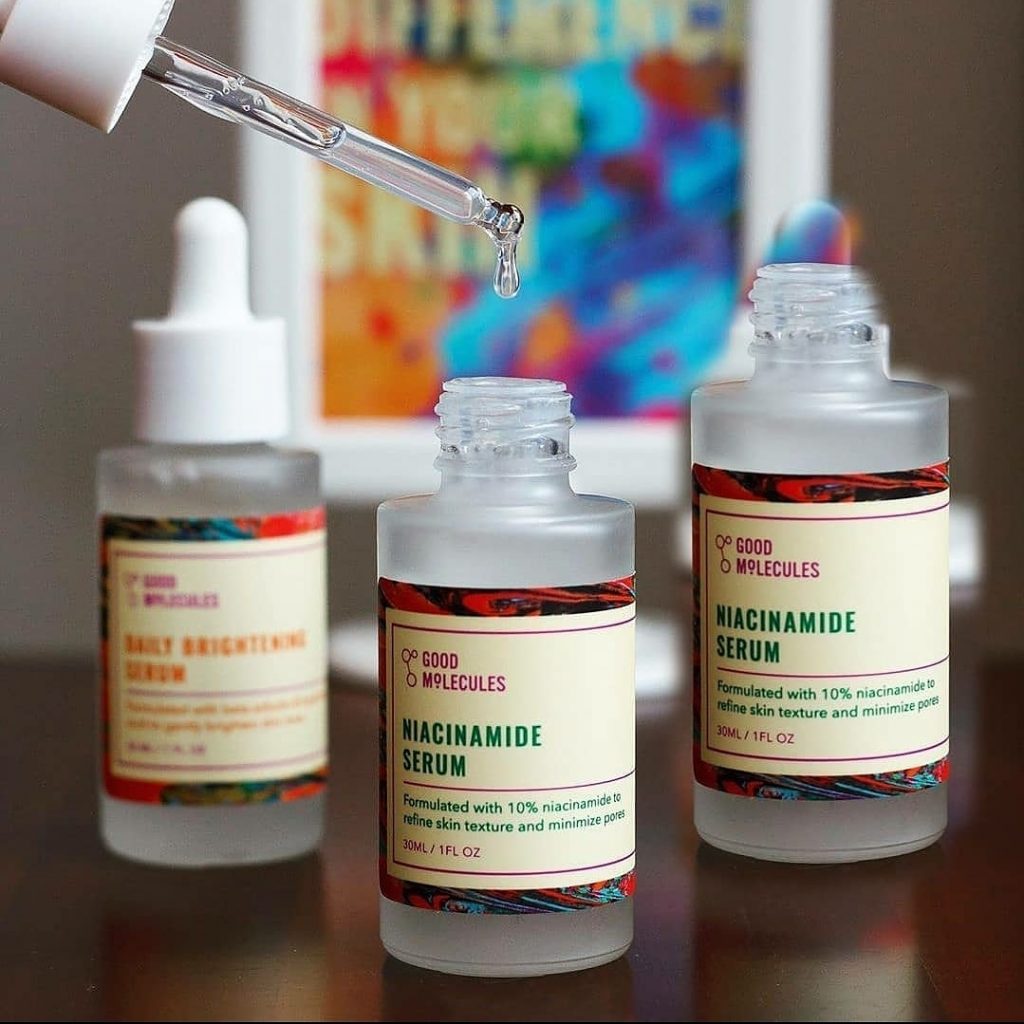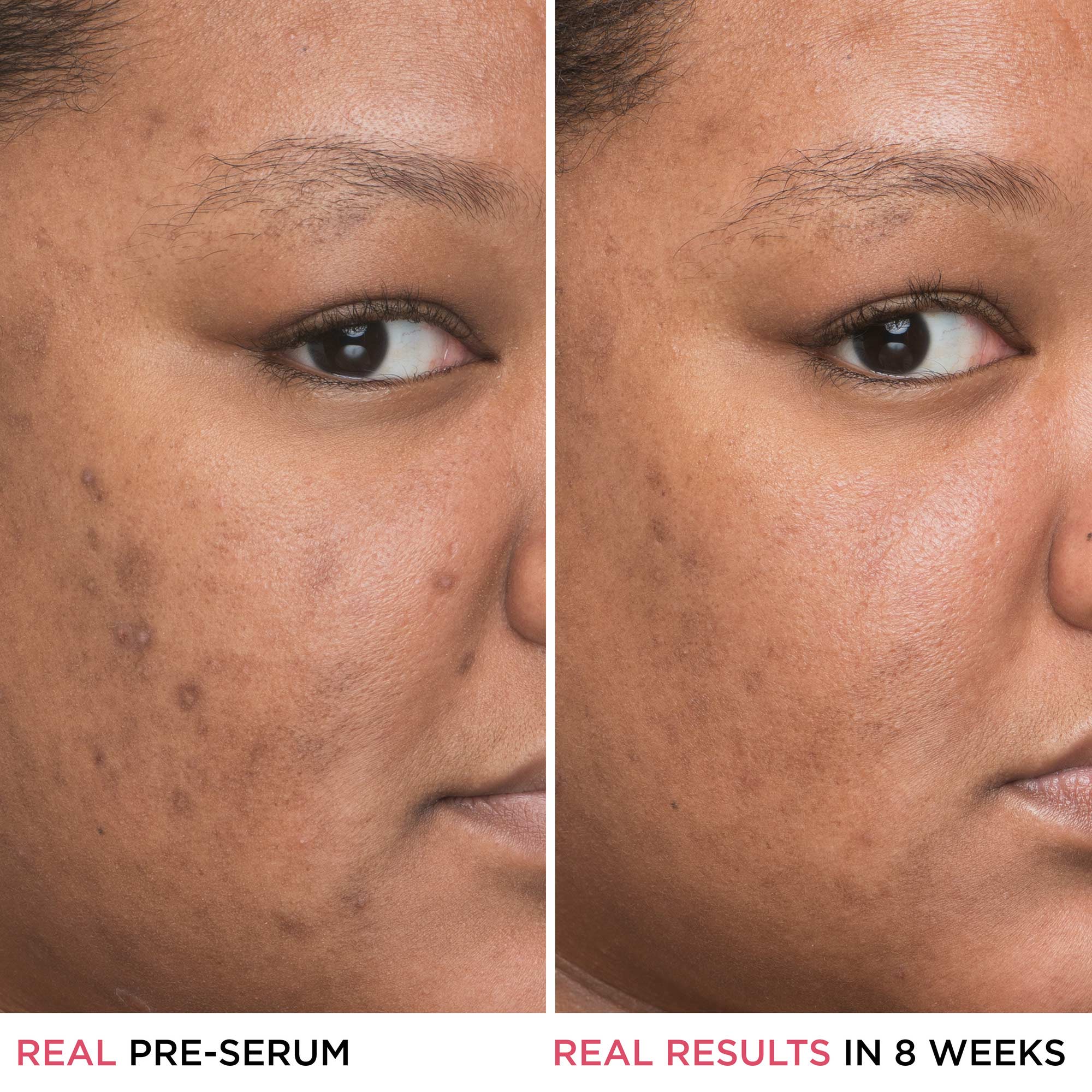Is Niacinamide Good For Sensitive Skin - A Look At This Skincare Helper
When your skin feels a bit delicate, maybe even a little reactive to things, finding products that truly help can feel like quite the puzzle. It's almost as if every new ingredient comes with a question mark attached, especially when you're hoping for a calming effect without any irritation. You know, that feeling where you just want something gentle yet effective. So, it's pretty natural to wonder about certain ingredients, particularly those that get a lot of chatter in the world of skin well-being.
Actually, a lot of people with skin that gets easily upset often look for solutions that are both kind and capable. It's a common desire to soothe things down, perhaps reduce some redness, or just make the skin feel more comfortable. This is why conversations often turn to specific helpers, like certain vitamins that do more than just support your body inside. We're talking about things that can actually make a difference when put directly onto your skin, you know, where it counts.
One ingredient that comes up quite a bit in these talks is niacinamide. It's a name you might have heard floating around, perhaps in discussions about keeping skin calm or making it look a bit more even. But if your skin tends to be on the more touchy side, you might be asking, "Is niacinamide good for sensitive skin?" It's a very fair question, and one that deserves a clear, straightforward answer, especially when you're trying to pick out what's best for your unique skin needs. We'll go through what this ingredient is, what it does, and how it might just be a friend to your delicate skin.
- Instellar 2
- Kim Kardashian Lamborghini
- Kate Iger
- Kitty Menendez Young Photos
- Is Live With Kelly And Mark Moving
Table of Contents
- What exactly is niacinamide and where does it come from?
- How does niacinamide help sensitive skin?
- Are there different ways to use niacinamide for sensitive skin?
- What are some benefits of niacinamide for sensitive skin?
- Can niacinamide help with specific skin concerns like redness or large pores for sensitive skin?
- Is niacinamide safe for all sensitive skin types?
- What to keep in mind when using niacinamide for sensitive skin?
- Niacinamide for sensitive skin - a quick look back.
What exactly is niacinamide and where does it come from?
Niacinamide is, well, one of the two main forms of vitamin B3. The other form is something called nicotinic acid. So, basically, when you hear about vitamin B3, you're often talking about one of these two. It's a pretty important part of the B vitamin family, which has eight different members, all working to keep various parts of your body functioning properly. This particular B vitamin, you know, niacinamide, is needed for a lot of basic body processes, which is actually quite interesting when you think about it.
You can find this vitamin B3, or niacinamide, in a lot of common foods we eat every day. Things like different kinds of meat, and fish, too. It's also present in milk, and eggs, and even green vegetables. Some cereals have it as well. So, in some respects, your body is used to getting this nutrient from your diet. Your body also has a way of making niacinamide on its own, especially if you happen to have a bit too much niacin already inside you. It's like your system has its own little factory for it, which is pretty neat.
This form of vitamin B3, often called nicotinamide, is something that's been studied a lot. It's available as a dietary helper, something you can take by mouth, and it's also used as a medication in certain situations. So, it's not just a new trend; it's something that has a bit of history in terms of how it's used for health. This means it's pretty well-known in the health community, which, you know, gives it a certain level of credibility.
- Chris Stapleton Football Picture
- Lawrence D Piro
- 1000 Lb Sisters Sodie
- Zodiac Aug 26
- Liv Morgan Alexa Bliss
How does niacinamide help sensitive skin?
When we talk about skin, niacinamide really shines. It has, like, many proven benefits for skin well-being. When you put it right on your skin, as part of your regular daily routine, it can actually help with various skin issues. For instance, it can be a real helper for things like acne, or even rosacea, which can be quite a challenge for many people. It also shows promise in helping with other skin conditions, such as wrinkles, and melasma, which are those dark spots on the skin. It’s pretty versatile, you know, in what it can do for your skin’s appearance and comfort.
One of the most important things niacinamide does for your skin, especially if it's on the sensitive side, is help repair your skin's natural protective layer. Think of your skin's outer layer as a kind of shield. This shield, when it's strong and working well, helps keep bad stuff from the outside world from getting in, and it also helps keep good stuff, like moisture, from getting out. So, when niacinamide helps to fix up this natural barrier, it pretty much reduces the impact of things that might bother your skin from the environment, like pollution or other irritants. It's a bit like giving your skin a stronger, more resilient coat.
For someone with skin that reacts easily, this barrier support is actually a big deal. When your skin’s protective layer is compromised, it can feel rough, look red, and just generally be more prone to feeling uncomfortable. By making this barrier more robust, niacinamide helps your skin feel calmer and look more even. It's almost as if it teaches your skin to be a bit tougher against things that might usually cause a fuss. My own experience, for example, is that I have very sensitive skin, and niacinamide is one of the only things I can tolerate that actually works for my redness, rough skin, and those larger pores. It really makes a difference, in a way.
Are there different ways to use niacinamide for sensitive skin?
You’ll find niacinamide in a bunch of different skin care items. It's an active part of many cleansers, those things you wash your face with, and it’s in serums, which are those more concentrated liquids you put on before moisturizer. You'll also see it in moisturizers themselves, and sometimes it's even put into other kinds of products. This means you have quite a few options for how to add it into your daily routine, which is pretty convenient, really.
When you're choosing a product with niacinamide, especially for skin that gets easily upset, it’s often a good idea to start with something that has a lower percentage of the ingredient. Some products might have a very high concentration, like 10% or even 15%, which, you know, might be a bit much for really delicate skin at first. For instance, I once tried a niacinamide product where the percentage was just way too high, and my skin reacted. But when I used something with, say, 4% in the formula, that was fine. So, it's about finding the right balance for your skin's particular needs.
It's also worth noting that while using niacinamide on your skin is really good, it doesn't mean you can skip other important steps for keeping your skin healthy. For example, sunscreen should always be used with it. Niacinamide is a fantastic helper, but it’s not a complete replacement for, you know, overall good sun care habits. So, it’s about adding it into a routine that already includes basic protection, which is, like, super important for any skin type, sensitive or not.
What are some benefits of niacinamide for sensitive skin?
Niacinamide is, quite frankly, a powerhouse for skin. It helps to fix up your skin’s natural protective layer, and this, in turn, helps to lessen the effect of things in the environment that can cause trouble, like those free radicals. These are unstable molecules that can damage skin cells. So, basically, it helps your skin defend itself better. This is a pretty significant benefit, especially for skin that tends to be a bit more vulnerable to outside influences. It's almost like giving your skin a little extra armor, you know?
It’s also considered ideal for most skin types, including skin that gets easily upset, because it can help with a whole bunch of different skin concerns. We're talking about things like acne, which can be a real bother, and also issues with pigmentation, where your skin might have uneven color. It even helps with signs of aging. So, in a way, it’s a very well-rounded ingredient that addresses many common skin worries, making it a good choice for a lot of people, even those with skin that needs a gentle touch.
For those with skin that tends to be more on the sensitive side, niacinamide is a really good choice, especially as an alternative to other ingredients that might be too harsh. For example, some people find ingredients like benzoyl peroxide, which is often used for acne, to be quite irritating. Niacinamide offers a gentler path to improving skin appearance without causing more upset. It’s like picking the kind option when you have a choice, which is always nice, isn't it?
Can niacinamide help with specific skin concerns like redness or large pores for sensitive skin?
Yes, it absolutely can. Niacinamide has a way of calming and soothing redness, which is a common issue for skin that's easily bothered. It also helps with blemishes and blotchy skin, making your complexion look more even and less inflamed. So, if you're dealing with a face that often looks red or has uneven patches, this ingredient might be a real friend to you. It's pretty good at bringing a sense of calm to the skin, which is exactly what sensitive skin often needs, you know?
Beyond just calming things down, niacinamide also helps with other common concerns. For instance, it can control how much oil your skin produces, which can lead to fewer breakouts. This is a big plus because breakouts can often make sensitive skin even more irritated. It also helps to make your skin barrier stronger, which, as we talked about, is super important for keeping your skin healthy and protected. So, it's not just about surface-level improvements; it's about making your skin healthier from the inside out, in a way.
And yes, it helps tremendously with pustular breakouts, which are those red, inflamed bumps. It’s also known to help with the appearance of large pores. So, if those are things that bother you, especially if your skin is sensitive, niacinamide offers a gentle approach to improving their look. It's like a multi-tasker that addresses several issues at once, which is pretty efficient, really, for something that's also kind to your skin.
Is niacinamide safe for all sensitive skin types?
Overall, niacinamide is considered a great ingredient for a range of skin concerns, and it’s even generally safe for those with skin that tends to be easily irritated. Many experts say that it has soothing and anti-inflammatory properties, which is why it works well for delicate complexions. So, for the most part, you know, it’s a very friendly ingredient that many people can use without much fuss. It's not like some other ingredients that might cause a lot of redness or peeling.
However, it’s important to remember that every person’s skin is unique. While niacinamide is often well-tolerated, there's always a chance that a very small number of people might experience some mild irritation, especially if they use a product with a very high concentration of it right away. My own experience, for example, is that I have very sensitive skin, and while I can tolerate a 4% formula, a higher percentage caused a reaction. So, it's always a good idea to start slowly, perhaps with a lower percentage product, to see how your skin reacts. It’s like testing the waters, you know, before you jump all the way in.
For those with dry skin, niacinamide is also considered good. It helps to make your skin more hydrated and also strengthens that important skin barrier we talked about. So, it's not just for people with oily or breakout-prone skin; it can be a real helper for those who feel their skin is often lacking moisture. It’s pretty versatile in who it can help, which is a nice thing to know when you're looking for something that works for your specific skin type.
What to keep in mind when using niacinamide for sensitive skin?
When you're trying out any new skin product, especially with skin that’s on the sensitive side, it’s always a good idea to start slow. Maybe use it every other day at first, or just a few times a week, to see how your skin responds. If everything feels good, then you can gradually increase how often you use it. This way, your skin has time to get used to the new ingredient, and you can catch any potential issues early on. It's like giving your skin a gentle introduction, you know, rather than a big surprise.
Also, pay attention to the other ingredients in the product. Sometimes, a product might have niacinamide, but it also has other strong ingredients that could be irritating for sensitive skin. So, it’s not just about the niacinamide itself, but the whole formula. For instance, some serums might combine it with hyaluronic acid, which is generally very hydrating and good for skin, or zinc PCA, which helps with oil. These combinations can be very helpful, but it’s still good to check the full list, you know, to make sure there’s nothing else that might cause a problem for your particular skin.
If you have extremely sensitive skin, or if you're worried about how your skin might react, it's always a good idea to talk to a skin care professional. They can offer personalized advice based on your specific skin concerns and help you choose the right product and concentration. They can also help you figure out if niacinamide is the best choice for you, or if there's something else that might work even better. It’s always helpful to get an expert opinion, you know, especially when it comes to something as personal as your skin’s well-being.
Niacinamide for sensitive skin - a quick look back.
So, to bring it all together, niacinamide, which is a form of vitamin B3, is actually a pretty amazing ingredient for skin, especially for those who have skin that gets easily upset. It helps to build up your skin’s natural protective layer, which can reduce redness, rough texture, and even make pores look smaller. It’s also good for issues like acne, pigmentation, and overall skin hydration. While it’s generally very gentle and well-tolerated, it’s still smart to start with lower concentrations and pay attention to how your unique skin reacts. It’s a very versatile helper that can address many different skin worries, making it a valuable addition to many skin care routines, particularly for those seeking calm and comfort for their delicate skin.
- Romano Giancarlo
- Julia Roberts Anne Hathaway
- Who Is Tiny Harris Brother
- How Tall Is Billy Dee Williams
- Ocho Cinco Young

DERMOREPUBLIQ 5% Niacinamide + Hyaluronic Acid Sensitive Skin Formula

GOOD MOLECULES Niacinamide Serum 30ml - Dream Skin Haven

Is Niacinamide Good For Oily Skin? - GA Fashion